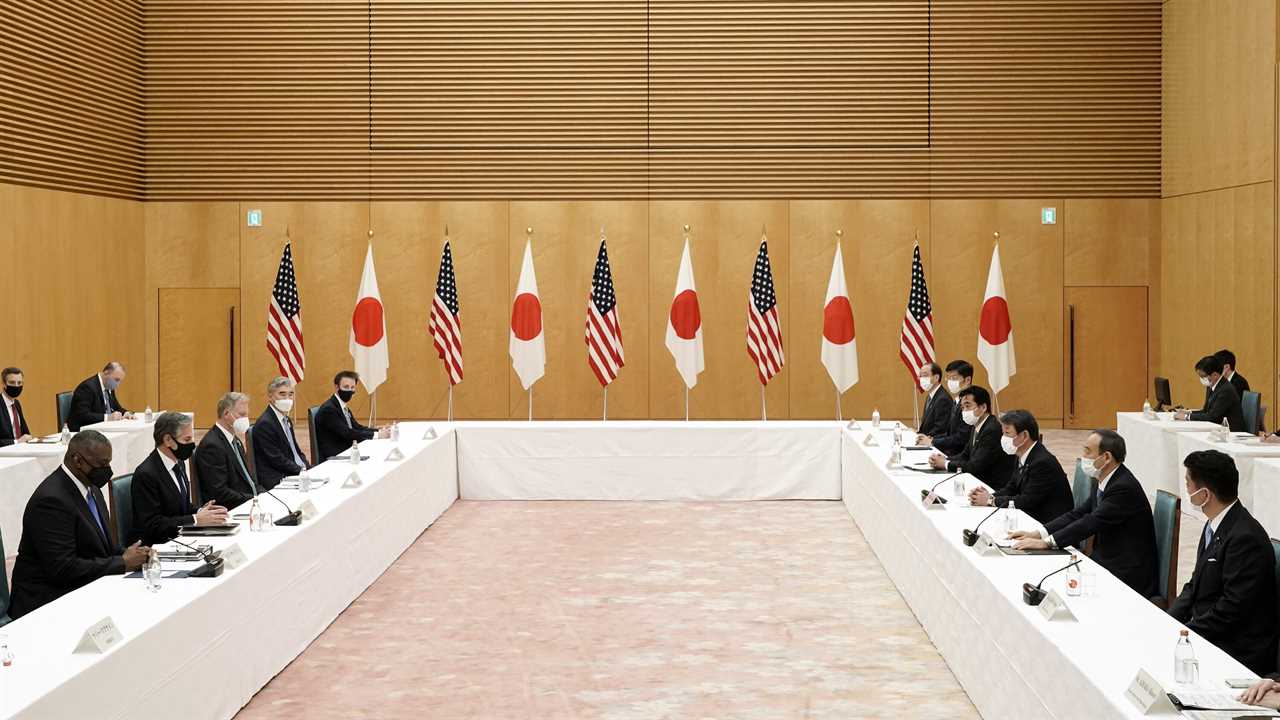
Just days before the Biden administration’s first face-to-face encounter with Beijing, two senior American envoys used a visit to Tokyo on Tuesday to set a confrontational tone for the talks, rebuking what they called “coercion” and “destabilizing actions” by China in its increasingly aggressive military forays in the region.
Following a flurry of meetings, U.S. and Japanese officials issued a two-page statement that left little doubt that President Biden would defy China in territorial disputes, challenges to democracy and other regional crises. Its robust censure of Beijing represented the kind of vigorous approach that Japan has been seeking from the United States after four years of skepticism worldwide about whether America would remain a reliable ally.
Accusing Beijing of violating the “international order” with maritime claims and activities, the statement defended Japan’s right to control the uninhabited Senkaku Islands, which are also claimed by China. It also called for stability in the Taiwan Strait, as some U.S. military officials see a growing chance that China will move to assert sovereignty over self-governing Taiwan in the coming years.
After the Japanese defense minister, Nobuo Kishi, referred to an “increasingly tense security environment” at the start of a meeting on Tuesday, the two U.S. officials, Defense Secretary Lloyd J. Austin III and Secretary of State Antony J. Blinken, offered reassurance.
“We will push back when necessary when China uses coercion or aggression to try to get its way,” Mr. Blinken said.
Mr. Austin noted Beijing’s “destabilizing actions” in the South and East China Seas, saying, “Our goal is to make sure that we maintain a competitive edge over China or anyone else that would want to threaten us or our alliance.”
Taken together, the Americans’ statements amounted to the most explicit admonishment in recent years by U.S. diplomats of Chinese provocations toward Japan and the rest of the region. They offered a taste of what is likely to come on Thursday, when Mr. Blinken is to meet in Alaska with two top Chinese officials in the Biden administration’s opening bid to define the limits of its relationship with Beijing.
For Japan, the meetings — the highest-level foreign travel so far by the new administration — offered comfort for those who had worried that Mr. Biden might back down from the Trump administration’s tough stance against Beijing.
“I think the message is directed to the Japanese people,” said Toshiyuki Ito, a retired vice admiral who is now a professor of crisis management and international relations at Kanazawa Institute of Technology. He added that the visit by Mr. Blinken and Mr. Austin signaled that “America has changed from ‘America First’ to putting importance on the alliance.”






